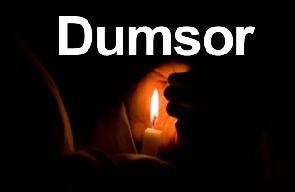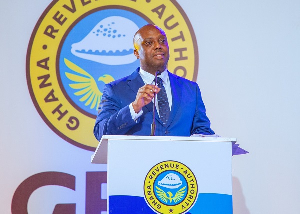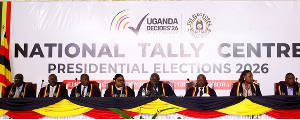The power sector was bedevilled with huge financial burdens and generation challenges that nearly crippled the Ghanaian economy. The debt burden was reported to be about US$ 1.5 billion, which militated against smooth operations of three major stakeholders in the value chain: Volta River Authority (VRA), Electricity Company of Ghana (ECG) and Ghana Grid Company (GRIDCo).
However, John Mahama’s led government took a number of innovative measures aimed at salvaging the situation. One of such measures was the introduction of Energy Sector Levy Act (ESLA) comprises; price stabilisation and recovery levies with overarching aim of retiring the legacy debts. Addressing the financial challenges in the energy sector was/is still crucial to uninterrupted power supply and survival of the banking sector.
The levies were mainly introduced to adequately address the debt conundrum. As it was clearly stated by President Akufo Addo’s maiden State of Nation Address in 2017, the energy sector was ridden with unbearable debt levels that threatened to break the back of the banking sector. Arguably, it was estimated that the huge indebtedness had reached alarming amount of 2.4 billion dollars as at 2017. Out of this colossal debt, a whopping $800 million was owed to the banking sector.
ESLA was therefore aimed at giving financial relief to the commercial banks, thereby making stakeholders to operate optimally. This was to avert future load shedding in the country. This debt management strategy initiated by the previous government was praised by critical energy sector observers.
According to the Former Finance Minister, Seth Terkper, the ESLA accounts accrued about Ghc 350 million by August, 2016. It has a capacity of generating three (3) billion Ghana Cedis annually. However, the real intention of it has been defeated by the current government through its unbridled misapplication of financial resources. Mr. Seth Terkper sounded alarmed at how Ghc661.5 million levies were misapplied in 2019.
According to him, proceeds of the levies to the tune of Ghc600 million were used to settle pension arrears. Amount of 61.5 million was also used as Partial Risk Guarantee. All these payments were made in contravention of ESLA legal requirements, starving the power sector the needed investments. The Act (Act 899) which was passed through certificate of urgency in December, 2015 provided for mobilization of revenue to service outstanding energy sector debts.
Another surprising move by the government that set tongues wagging in the energy industry was the use of the ESLA as collateral in the bond market. Nonetheless, it has been proven to be useful in its intents and purposes in clearing greater part of the legacy debts. It was variously reported that the Akufo Addo led administration had settled over GHc 2.5 billion legacy debts owed to the ECG. Also reported was payment of 91% of $ 624 million outstanding debts owed to Bulk Oil Storage and Transportation (BOST).
Furthermore, the government claimed to have settled in full the legacy debt due the Chamber of Bulk Oil and Distributors (CBOD). These are remarkable feat in the energy industry and vindication of the erstwhile Mahama’s government that initiated the ESLA, despite opposition and orchestrated demonstrations by the NPP and its surrogates. The irony is that the government has extended a five (5) year sunshine period to perpetuity.
It is high time Ghanaians eschewed partisanship in matters of national interest. Playing partisan politics with energy sector could be counter-productive as reality will always catch up with those dabbling in it.
Resurgence of ‘dumsor’ (power outages) in recent times should be a warning signal to our policy makers and politicians that it has no respect for regimes, but prudence.
No amount of political gymnastics can hide the reality of current power rationing in the country. If the government does not handle the power sector competently, the re-emergence of ‘dumsor’ will expose it.
Another strategy activated by the previous government to avert future power outages was to increase generation capacity to almost 5,000MW from little above 2000MW at the height the four year-long power rationing. To achieve this target, several thermal and emergence plants were initiated and completed in 2016. Other power projects reached various stages of completion, which were subsequently completed under the current dispensation. It is however; prudent to point out that the country’s peak demand was only 2, 612MW in mid-2020, leaving a whopping excess power generation of 1,968MW.
In the last four years, the current government spared no time blaming the John Mahama’s government of leaving it with excess electricity generation capacity. They bemoaned the high capacity charges associated with those ‘redundant’ power plants. However, what they failed to explain to Ghanaians is that our electricity demand increases at the rate between 10% and 15% annually. And sooner or later the demand could outstrip generation of electricity in the country. Furthermore, due to the excess capacity, Government of Ghana under John Mahama positioned the country as a net exporter of power in the sub-region. Competency requires that the government manage the excess capacity to the benefit of the country.
Hence, grid networks were upgraded and extended to neighbouring countries: Cote DI’voire, Togo and Benin to export power to them for foreign exchange. This was described as lucrative geo-political strategy of positioning Ghana as power generation hub in West Africa. Nonetheless, It has not been in doubt that ‘take or pay’ contractual regime associated with some of these power plants was not prudent and unfavourable. The government should take steps to stem the tide of electricity wastage that may be occasioned.
For the current load shedding to be averted, strategic investment is required in the transmission and distribution lines. Most of the equipment are obsolete and need urgent routine maintenance. There is high level of losses in the transmission and distribution systems, which are estimated as 26% and 22% respectively. It is pointless to say that rolling back of power rationing has everything to do with inadequate investment in the power sector.
The recent populist decision by the president to reduce electricity prices had rippling effect on the value chain and contributed significantly to the under investment in the power value chain. Under recoveries over the years often starved Electricity Company of Ghana and Grid Company the needed resources for critical investments. Reinvestment in the obsolete equipment of both ECG and GRIDCo is crucial to avoiding worsening the recent energy crises in the country.
When the high voltage power transmission lines are not upgraded, they experience overload and power strips. Hence, the obsolete nature of transmission and distribution networks and substations requires regular, routine maintenance and upgrading to withstand demand pressures.
The government therefore has clear cut responsibility of averting a prolonged power rationing that has potential of engulfing the whole country. Posterity will be unkind to Akufo Addo’s government if it sits aloof for ‘dumsor’ to roll back into full force. The stakeholders in the power sector should cut off the grammar and get to work. Enough of the grammar! Whether it is blackout, intermittent power cuts, power outages or ‘dumsor, none of them is warranted.
The continuous denial of ‘dumsor’ by the government officials can only amount to irresponsibility and dereliction of duty. For the power sector to have its maximum operations, political interferences must be nipped in the bud going forward.
Opinions of Wednesday, 26 May 2021
Columnist: Mustapha Iddrisu















